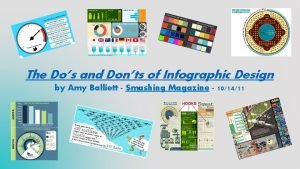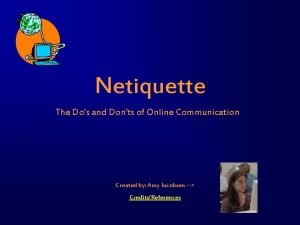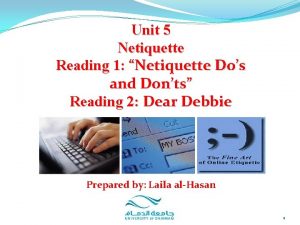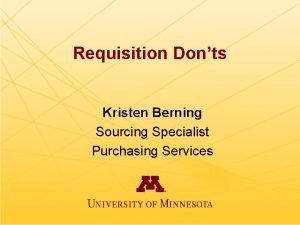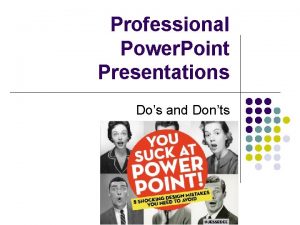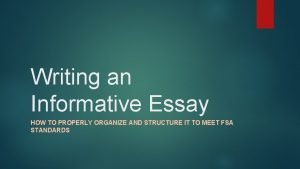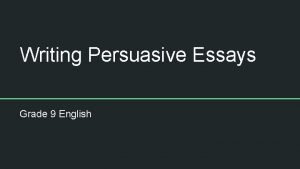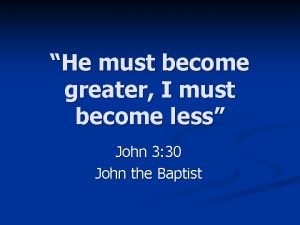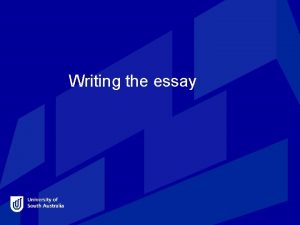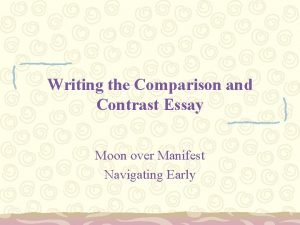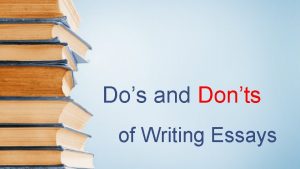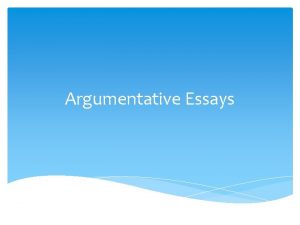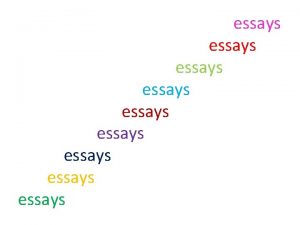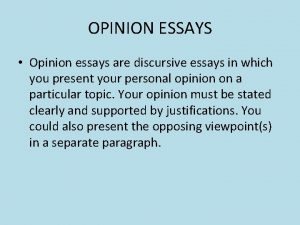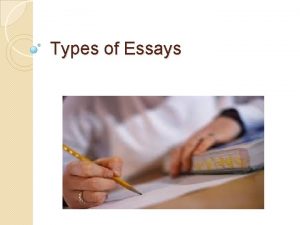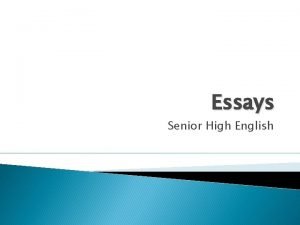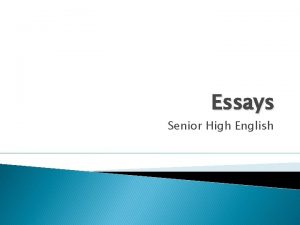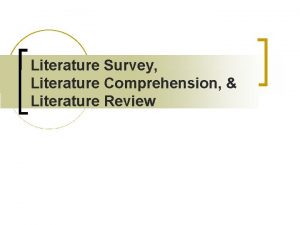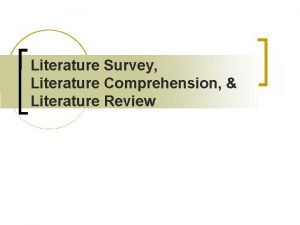AP English Literature Essays Must Dos Must Donts












- Slides: 12

AP English Literature Essays Must Do’s Must Don’ts

The Essay’s Purpose • The essay is intended to demonstrate your deep, analytical understanding of the text (whether or not it is provided). • The essay must represent your position on the prompt and provide well selected evidence to support that position. • The essay must demonstrate your command of language/vocabulary and your command of constructing an essay.

Thesis and More • Your essay must have a clear thesis. It is stated in the first paragraph along with the hook of the essay. • Your essay must have details/evidence that supports your thesis and all claims made in the text. • Your essay must contain analysis/interpretation of the details/evidence.

DETAILS/COMMENTARY • While you may not be a fan of Jane Shaffer, she was right. • You should have 1 sentence of evidence to 2 sentences of analysis.

VERB TENSE • Always use the PRESENT TENSE in literary analysis! • Remember to avoid any use of the verb “to be” Example: • Dorian Gray makes a deal with the devil, only to regret the exchange of his soul for enduring beauty.

QUOTATIONS • DO give them context. Ex. - Lord Henry enticed Dorian, convincing him his “whole soul” was meant for “only pleasure” (Wilde 12). • DO NOT plop them into the text of your essay for decoration! Ex. - “What a pity it was that such beauty was destined to fade. ” There was discussion by Lord Henry of the value of beauty. ) • DO NOT INTRODUCE THEM OR FOLLOW THEM UP EXPLICITLY. Ex. - The meaning of this quotation is…

DESCRIPTORS • Add meaning to your observations Ex. – In Smith’s poem, the speaker uses tone and literary devices to communicate theme. (THIS PROVIDES NO INSIGHT!) WHAT KIND OF TONE? WHAT KIND OF LITERARY DEVICES? WHAT IS THEME? ? You must avoid being vague!

PERSUADE! • DO persuade! • You must claim something and persuade the reader throughout the essay with evidence and analysis! • Use a minimum of two body paragraphs to persuade the reader! • IT IS CALLED ARGUMENTATION!

CONTRACTIONS • DO NOT USE THEM! USE… • CANNOT • THEY ARE • IT IS • WE ARE • THEY WILL See how easy it is?

TOPIC SENTENCES • You must have them! • You cannot use a quotation in place of a topic sentence! • Be specific and make certain you are building upon your thesis!

I, ME, MINE • AVOID THEM! • Never reference yourself as the reader. • Avoid the use of personal pronouns. SO, AVOID. – I believe; I think; In my opinion; It appears to me

Avoid Bologna! • You are wasting my time when you offer only bologna! • You are wasting your brain when you offer only bologna! • You are wasting educational resources when you offer only bologna! • You are damaging your future when you offer only bologna!
 Netiquette do's and don'ts
Netiquette do's and don'ts Dos and donts infographic
Dos and donts infographic Core rules of netiquette
Core rules of netiquette The email
The email Netiquette summary
Netiquette summary Kristen don'ts
Kristen don'ts Text donts
Text donts How to do informative essay
How to do informative essay English persuasive essay
English persuasive essay Cut is the branch that might have grown explanation
Cut is the branch that might have grown explanation I must become less
I must become less Academic writing introduction
Academic writing introduction Comparison thesis statement
Comparison thesis statement

